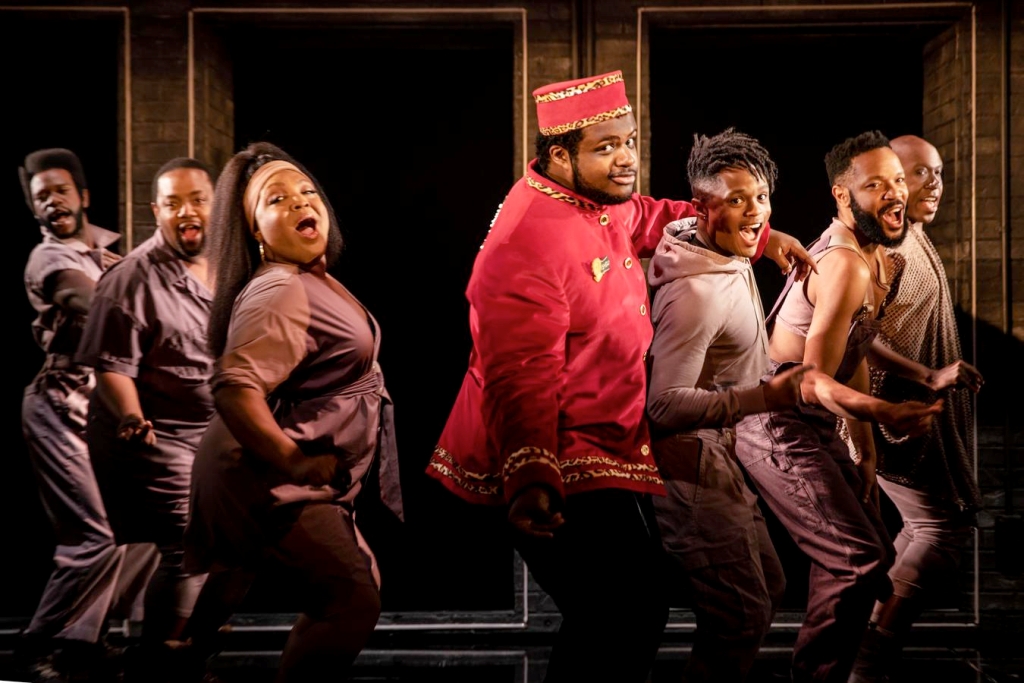A STRANGE LOOP
Book, Music and Lyrics
by Michael R. Jackson
Directed by Stephen Brackett
Official Website
Reviewed by David Spencer
A Strange Loop is an odd bird. It’s actually not remotely the first self-referential musical in which the writer—in this case, composer-lyricist-librettist Michael R. Jackson—determines to tell his own autobiographical tale about being a musical theatre dramatist struggling with identity, sexuality and making a living…in my time teaching and occasionally screening for competitions, I’ve seen drafts and incomplete attempts at more than a few.
But A Strange Loop is the first one to get past the hurdles and into production, winning huzzahs and a Pulitzer Prize in the process. What makes this one different?
Some of its good fortune is of course due to the Zeitgeist of the times and the emphasis on diversity stories and authors: Mr. Jackson writes about being a young, overweight black man whose issues of self-perception are deeply rooted in how his parents perceive him. If written coherently and presented professionally, that can be enough to get you out of the first-read pile and into the next level of consideration. But after that, you need a unique kind of juice.
Mr. Jackson’s comes from his ability as real-life author view his avatar main character—a theatre usher named Usher—with a sense of overview and perspective. Where usually something like this would be a prime example of Mary Sue-ism, A Strange Loop manages to leap over the usual pitfalls of self-pity, self-aggrandizement and self-indulgence, owing to Mr. Jackson’s knack for self-effacement and self-irony. I
In this respect, he’s not unlike a standup comic who might likewise riff on his life. Thus, he presents us with a character who, despite all the particulars, is the logical descendant of—believe it or not—Charlie Brown (in Clark Gesner’s original version of the musical You’re a Good Man, Charlie Brown, not to be confused with the distortive ‘90s revisal not of his authireship), a genuinely sweet soul with whom we identify because no matter what befalls him, he never stops trying to figure out the conundrums of his life. And indeed, the ensemble consists of Usher (Jaquel Spivey) and, playing various and sundry other roles, his “thoughts” (J. Morgan Lee, James Jackson, Jr., John-Michael Lyles, John-Andrew Morrison, Jason Veasey, Antwayn Porter).
None of this would have any meaning at all, of course, if the score weren’t craftsmanlike and attractive enough to deliver on the potential, and happily, it is.
Caveats? A few. Usher never ends his loop or seems to understand it better, though he does get fed up enough to attempt to stop feeling victimized by those whose repressive tactics would keep him in it.
And ultimately we’re never quite sure if he succeeds.
Implicitly he does: after all, we’re watching the fruits of his labor being performed, and the show does indeed consciously acknowledge the presence of the audience…but Usher never claims that victory. And thus A Strange Loop ends without full catharsis; and for a hit musical that’s as that’s a strange a characteristic as the loop it typifies. A paradox to be sure, and no doubt intentional.
But all the other factors, plus a swell cast and top-tier direction by Stephen Brackett, are the significant compensation.
And there may be one other.
Now that Mr. Jackson has pulled off the self-referential, autobiographical musical successfully, perhaps it will be The Musical Filling That Niche so conspicuously that no one else ever again need dare inflict another, lesser one upon the universe.
Hope is the thing with feathers…
